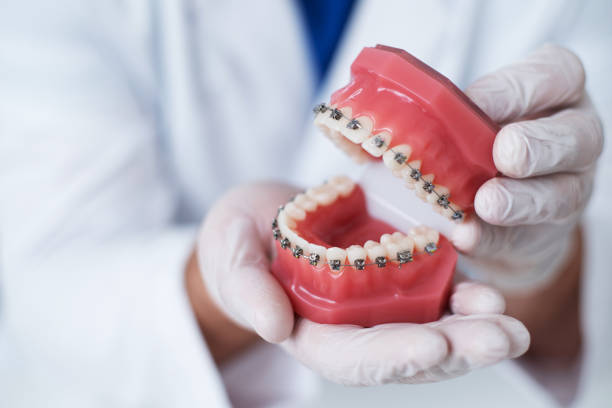Pediatric dentistry is essential in helping children develop good oral health habits and preventing dental issues as they grow. If you’re a parent, you likely have questions about how pediatric dentistry works and what to expect. Here are answers to ten of the most common questions about pediatric dentistry.
1. What is Pediatric Dentistry?
Pediatric dentistry is a branch of dentistry focused on the oral health of children from infancy through their teenage years. Pediatric dentists undergo specialized training to understand the unique dental needs of children and provide comprehensive care, including cleanings, exams, preventive treatments, and more.
2. At What Age Should My Child First See a Pediatric Dentist?
The American Academy of Pediatric Dentistry (AAPD) recommends that children visit a pediatric dentist by their first birthday or within six months after their first tooth appears. Early dental visits help prevent issues like tooth decay and establish a positive relationship with dental care.
3. How Often Should My Child Visit the Dentist?
Children should visit the pediatric dentist every six months for routine check-ups and cleanings. These regular visits allow the dentist to monitor their oral development and address any potential problems early.
4. Why is Pediatric Dentistry Different from General Dentistry?
Pediatric dentists have additional training that focuses on the specific dental needs of children, including behavioral management, preventive care, and early intervention for dental issues. Their offices are often designed to be more child-friendly, with an emphasis on making young patients feel comfortable and reducing anxiety.
5. What Can I Expect During My Child’s First Visit?
Your child’s first dental visit is usually short and involves a gentle examination to check for any signs of decay, issues with gum health, or developmental concerns. The dentist will also educate parents on proper brushing techniques, fluoride use, and dietary advice to protect your child’s teeth.
6. How Can I Prepare My Child for a Dental Visit?
To prepare your child for a dental visit, you can:
- Talk about the visit in a positive way.
- Use books or videos that explain what happens at the dentist.
- Avoid negative language like “pain” or “hurt.”
- Make the experience feel fun and exciting.
A pediatric dentist’s office is designed to help reduce anxiety and make the visit enjoyable for children.
7. What Are Dental Sealants, and Does My Child Need Them?
Dental sealants are a protective coating applied to the chewing surfaces of the back teeth (molars). They help prevent cavities by sealing deep grooves where food particles and bacteria can get trapped. Sealants are often recommended for children as their permanent molars come in, typically around ages 6 and 12.
8. How Can I Prevent Cavities in My Child’s Teeth?
To prevent cavities:
- Ensure your child brushes their teeth twice a day with fluoride toothpaste.
- Encourage flossing daily to clean between the teeth.
- Limit sugary snacks and drinks that contribute to tooth decay.
- Schedule regular dental check-ups.
- Consider fluoride treatments and dental sealants to strengthen teeth and protect against decay.
9. Does My Child Need Fluoride Treatments?
Fluoride treatments are beneficial for most children as they strengthen the enamel and help prevent cavities. A pediatric dentist can apply fluoride varnish during routine visits. For children who live in areas without fluoridated water, the dentist may also recommend fluoride supplements.
10. What Should I Do if My Child Has a Dental Emergency?
If your child experiences a dental emergency, such as a knocked-out tooth, severe toothache, or injury to the mouth, contact your pediatric dentist immediately. Many pediatric dentists offer emergency care or can provide advice on what to do until you can get to the office. Acting quickly in an emergency can help save a tooth or prevent further complications.
Conclusion
Pediatric dentistry plays a vital role in maintaining your child’s oral health and building lifelong habits that lead to a healthy smile. By understanding these common questions and answers, you can feel confident in supporting your child’s dental care journey.
Source URL: Tips for a Healthy Smile at Any Age


